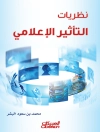How do artificial neural networks and other forms of artificial intelligence interfere with methods and practices in the sciences? Which interdisciplinary epistemological challenges arise when we think about the use of AI beyond its dependency on big data? Not only the natural sciences, but also the social sciences and the humanities seem to be increasingly affected by current approaches of subsymbolic AI, which master problems of quality (fuzziness, uncertainty) in a hitherto unknown way. But what are the conditions, implications, and effects of these (potential) epistemic transformations and how must research on AI be configured to address them adequately?
Mengenai Pengarang
Andreas Sudmann (PD Dr.) is a media scholar at the universities of Bochum and Bonn in Germany. His research interests include AI, digital cultures, media theory, history of media, and media critique.
Anna Echterhölter (Prof. Dr.) is professor of history of science at Universität Wien. Her main research areas are the history of data and German colonialism.
Markus Ramsauer is Ph D candidate in history of science at the Department of History at Universität Wien.
Fabian Retkowski is Ph D candidate in computer science at the Institute of Anthropomatics at Karlsruhe Institute of Technology.
Jens Schröter (Prof. Dr.) holds the Chair of Media Studies at Rheinische Friedrich-Wilhelms-Universität Bonn. His main research area is the theory and history of digital media.
Alexander Waibel (Prof. Dr.) works at the Institute of Anthropomatics at Karlsruhe Institute of Technology. His main research areas are artificial intelligence, machine learning, automatic speech recognition & translation, multimodal and perceptual user interfaces as well as neural networks.









